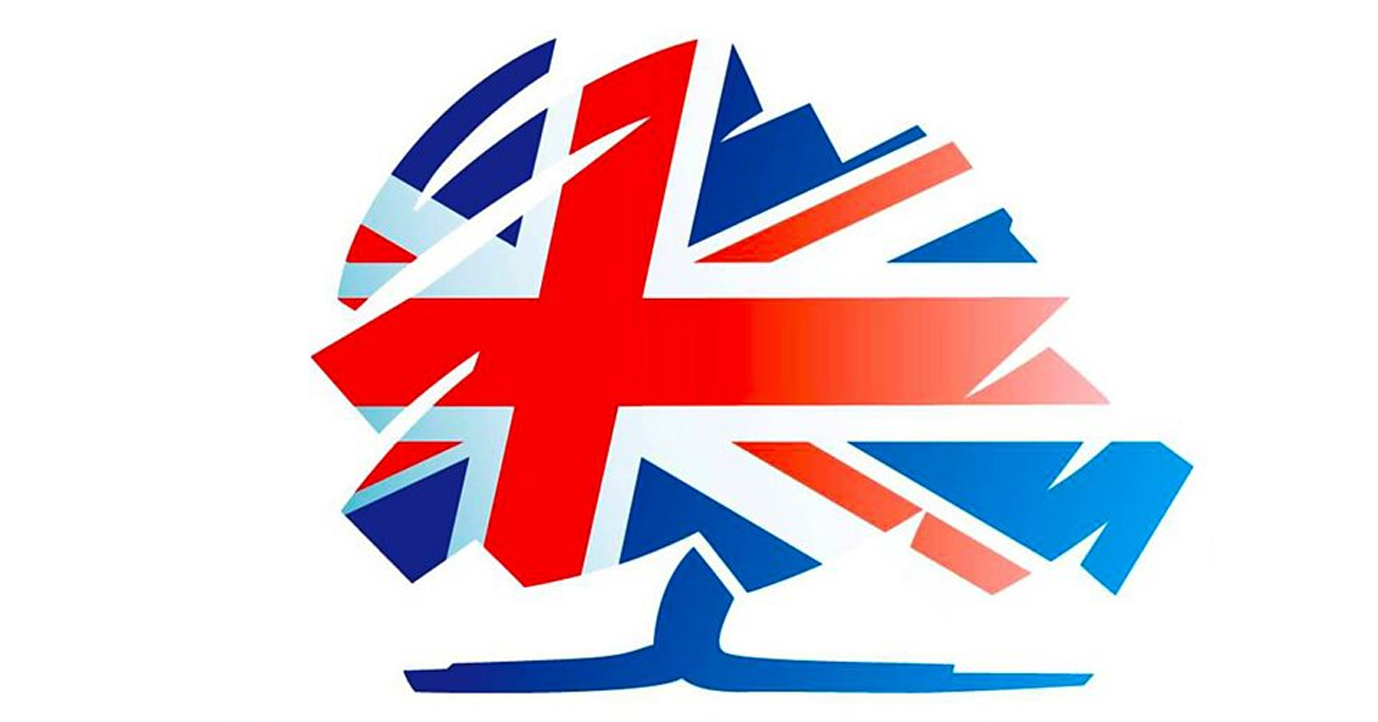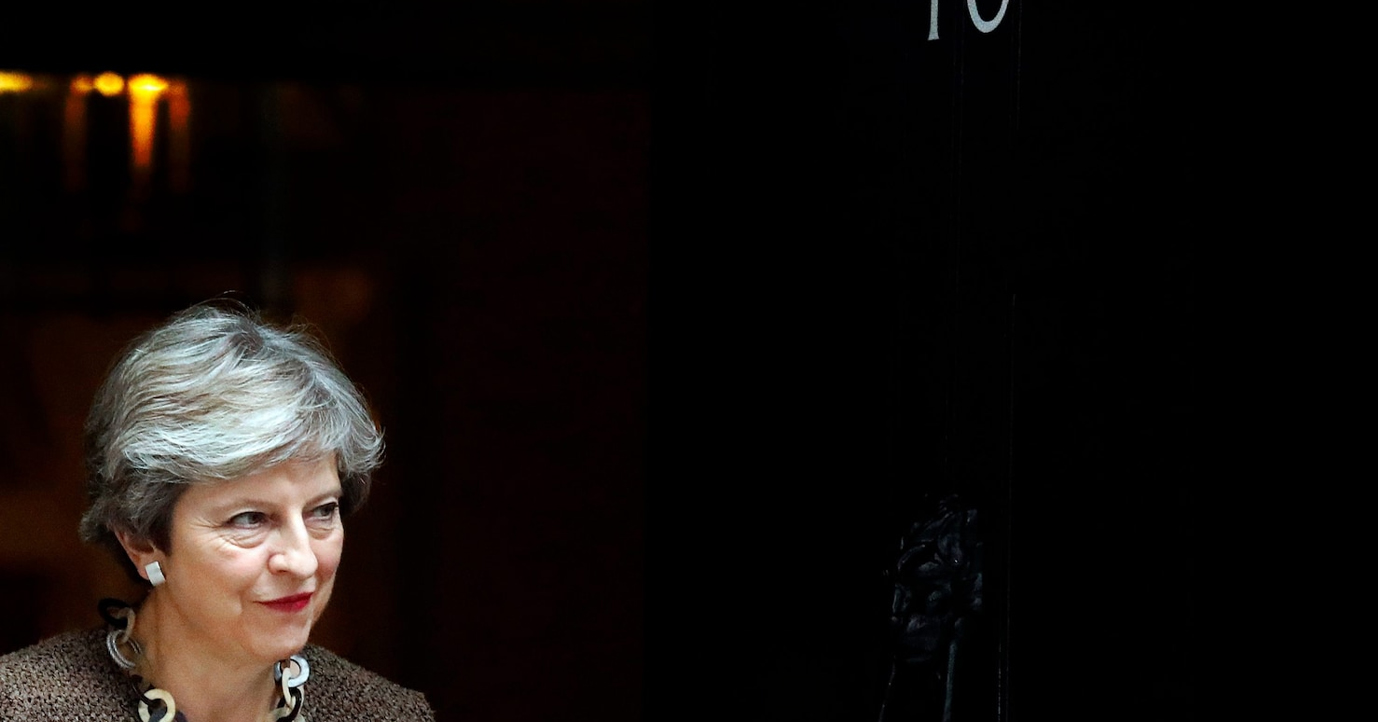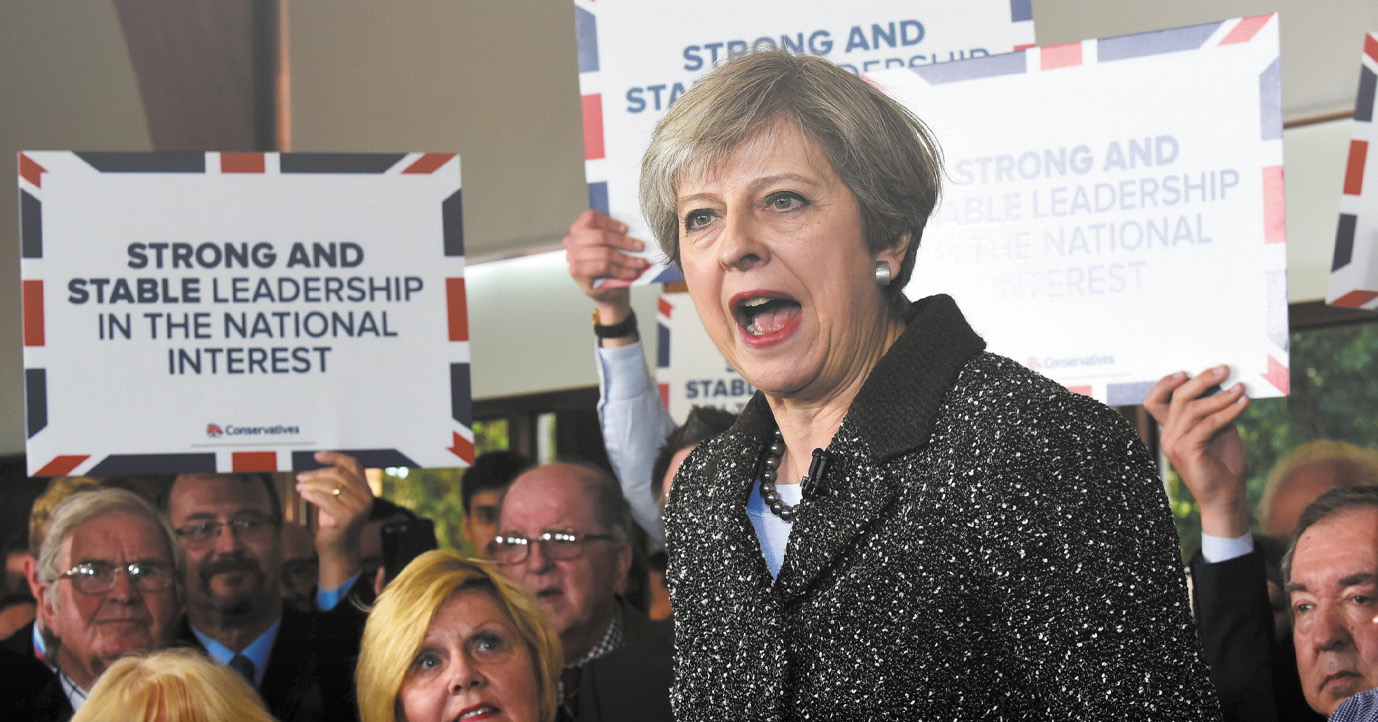
This week’s general election focus group report comes from two Scottish seats which fell to the SNP in 2015 but could be competitive on 8 June: Edinburgh South West, and Aberdeen South. In each seat we spoke to two types of people: those who voted no to Scottish independence in 2014, Labour or Liberal Democrat in 2015, and who were undecided what to do this time round; and those who voted SNP at the last general election and to leave the EU in last year’s referendum.
With this latter group, we began by asking how they arrived at what some might see as a contradictory set of opinions. For a few, it had been a cunning ruse that seemed to have backfired: “I mistakenly thought it was a tactical vote that if we vote to leave it would end up triggering Scottish independence”. Some argued in similar terms to leave voters in other parts of the UK: “You can’t just say, carte blanche, ‘come into this country’. The SNP have this big ‘welcome, welcome, welcome’, but we can’t, we just can’t”; “I think while some of their employment laws are good, a lot of it is just bureaucracy and nonsense”; “My son is a fisherman, and when he goes trawling he’s only allowed to go within certain limits, whereas people from the EU come over here and fish anywhere they like.”
But many of these SNP leavers (who, according to our survey on the day, constitute more than one in three Scottish Nationalist voters) saw complete consistency in their two referendum decisions: “Both votes were votes for something smaller, something more manageable. They were both a vote for more self-governance, on a smaller scale”; “You’d rather run your own country. I’d rather be run by Westminster than be run by Brussels.”
The SNP’s strident opposition to Brexit and desire to keep Scotland in the EU had led some of these people to turn away from the party: “I can’t vote SNP, because of the simple reason that I voted to leave Europe. So why leave the UK to be run by Europe?”
There were mixed views from both groups as to whether Scotland should indeed have another referendum on independence in the near future. Some previous no voters thought there was a case to be made: “Everything’s changed. If Brexit does go ahead, I would seriously consider changing. We voted no to remain in something that doesn’t exist any more. We were choosing to remain part of the UK when it was part of the European Union”; “If we’re going to be better off out of Europe and independent, of course that should be an option.” But plenty of others thought the argument for independence was if anything weaker (“we can’t go on our own now, we’ve got nothing at the back of us”), or simply felt they had done quite enough voting for the time being: “I voted yes and I cannot face another huge decision. It’s just… the thought of it is so stressful.”
*
For those who had voted SNP in 2015 but were now looking elsewhere, the party’s apparently dogged pursuit of the independence agenda was the single biggest reason. This suggested several things about Nicola Sturgeon and the Scottish Nationalists. The first was that they did not, after all, seem all that devoted to the people’s will: “It was meant to be a once-in-a-generation vote, they’d respect the opinion of the people, people voted no, and they’re pushing for another one. So I think a lot of people lost faith”; “She had her vote and it didn’t happen for her, but she still hasn’t let it go. She still keeps banging on about it at any opportunity she gets.” Another was that what they saw as the SNP’s single-mindedness made them seem out of touch with the times: “We’ve got bigger problems at the minute, like Brexit… Just now, when there’s bigger stuff going on nationwide, I think we have to look at the bigger picture, and for me personally that’s why I’ve gone away from the SNP just now.” Yet another was the feeling that the independence agenda had led the party to neglect priorities at Holyrood that many voters felt were closer to home: “Every time Nicola Sturgeon is on the television she’s banging on about the referendum to go solo, but she wants to be concentrating on things like the NHS, that’s in absolute chaos, education, absolutely awful. One of my grandchildren has not had a decent teacher this whole year”; “It’s the fact that the SNP haven’t really delivered. They said a lot of things they would do, and they haven’t changed. They can talk the talk but they can’t walk the walk”.
And in Aberdeen in particular, the collapse in the oil price had led some to question the assumptions behind the independence argument. Though they did not blame the SNP government for the industry’s plight, it did make the idea of an independent Scotland seem somewhat more precarious: “The SNP was all about the oil. Should they not have been more informed than we were about things like that? Should they not have known that the oil was about to go on a downturn?”
There were also doubts as to the effectiveness of the SNP’s huge delegation at Westminster: “What impact they can have in terms of votes in the House of Commons I’m not sure, but it’s a voice”; “They cost a fortune. If you look at the table between the expenses of their predecessors and how much they’ve claimed on their expenses, it’s outrageous, absolutely outrageous – three, four times as much. They’ve got their nose in the trough.”
Such criticism of Scotland’s biggest party was far from universal. Many still liked and admired Nicola Sturgeon, and people noted that the SNP still seemed the most visible and active party on the ground. However, many said they found its online supporters wearying: “I’ve got a few Facebook friends who are just mad SNP pro-indy… I just put them on ‘ignore’. I actually hovered over ‘unfollow’”; “It’s like getting a cheese grater dragged down your face”.
*
Many of those who were looking for an alternative to the SNP were hesitant about going to Labour. Some thought Jeremy Corbyn was having a good campaign and found themselves paying more attention to him as time went on: “When I started to listen to him being interviewed and him actually talking, I had a slightly different impression of him. I think up until then I had just bought into, oh, he’s weak and he’s not really going to be effective in any way.” Some also argued that the leader was less important than the policies, some of which had caught their eye: “Nationalising the Royal Mail, that would be brilliant. We’d be getting 700 million quid profit a year, and none of it going into the coffers of shareholders.”
For some others, though, the manifesto was not much more than a fantasy: “You’ve got someone with an ideological manifesto because he knows he doesn’t have to deliver it, against someone who knows they have to deliver based on this and that their party’s riding on it.”
And many couldn’t see past the leader and his team: “He seems a bit soft, a bit wishy-washy”; “He’s surrounded by people… Diane Abbott! They’re not the cleverest people. I know she got trapped in a difficult situation, but the level of politician the Labour Party has is not the quality they had in the past”; “He’s just too much of a pacifist for me. I think you need a strong leader… He’s for the working man and all that, and I think he’s the leader if it hadn’t been for the way things are nowadays”; “They went too far to the left, Corbyn and the people around him, John McDonnell and Diane Abbott. They’re just not going to win the centre ground, and that’s what they need to win. I mean, I’m a socialist, but you’ve got to be practical.”
*
Most of those considering a change of parties, this left one viable option: “I hate to say it, but the Tories.” A combination of Labour’s demoralised state in Scotland and the performance of Ruth Davidson had left the Conservatives as the “natural opposition” to the SNP. The leader was praised on all sides (even if “she talks too fast”): “I find her quite listenable. She’s very engaging;” “I’ve never voted Tory but she’s got what I think is missing UK-wide, that likeability factor;” “It’s her personality. She’s done comedy shows, and she comes across as a great leader;” “Her Twitter game is strong.” Importantly, for party often associated with England, “she’s more of a Scottish Conservative, as opposed to an English Conservative in Scotland.”
This likeability did not detract from her seriousness. “I think she can say what she needs to say. I think if she’s got something to put across, she will say it”; “Somebody’s got to stand up to Nicola, and she can stand toe to toe with her.”
The UK-wide Conservative Party and its leader, meanwhile, received rather more mixed reviews. Some in the groups had not taken to Theresa May: “I don’t find her relatable at all. I never thought I’d miss David Cameron, but I do… When she starts talking it’s like she’s reading a script”; “She tries to come across in that Thatcher directorial tone, but actually can’t deliver it. It comes across like a false front:” “I think if she’d done the debates she’d have been ripped to shreds.”
Some had also recalled what they had heard of Tory proposals with disapproval (“bringing fox hunting back, which I was a bit surprised about”), or were disturbed by changes of direction which made the government seem less strong and stable than it liked to claim: “The social care, and then the reversal… It’s just the way they backed down on it a little bit because they lost support;” “It’s like in the budget, things are pushed through and then suddenly it’s like, ‘oh, you didn’t like it, we’ll take it back”.
However, the Prime Minister had won supporters among former Labour, Lib Dem and SNP supporters: “She comes across as being for the working class, which I think it quite unusual”; “Very hard-nosed. She’s tough. She’s got a bit of backbone;” “For me, she’s quietly confident. She doesn’t have to exert her power. She’s just got it available to her.”
As we have regularly heard elsewhere, some were prepared to switch to the Tories on the basis of these qualities – and the contrast with her opponents – given the task ahead: “For as long as I can remember I’d never think about voting Conservative, but I think the most important issue is Brexit, I think Labour scrapping and restarting it would not be beneficial to the UK, I don’t agree with the Lib Dems trying to do the vote again, because the people have spoken and that’s how it should be even though I disagree with it, and the Conservatives I think are in the best position to negotiate us a deal”; “Whatever ridiculous figure is pulled out for leaving, I think she’s strong enough to say you either take our offer or you get nothing… Corbyn is too much of a gentleman. I don’t think he’d push it too far, he’d accept the middle ground, and possibly not to our best advantage.”
For some others, the Tories represented the most effective tactical vote “so the Scottish Nationalists can’t get enough votes for another independence referendum.” And for a few it was simpler than that: “I just think the Tories are doing a better job of running the country. If you had a choice between Tories and Labour, which it’s going to be, the Tories are running the country better… If it’s not broke, why fix it, sort of thing.”
*
If our party leaders had not gone into politics, what would they be doing instead? What about Tim Farron? “A vicar.” “A double glazing salesman.” “Maybe a gap year.” Jeremy Corbyn? “A union leader.” “Some non-existent job.” “Human rights. Something in human rights.” “Someone who works in a school, teaching sociology, or theology.” What about Theresa May? “Corbyn’s boss, as headmistress.” “In a girls’ private school.” Would it be well run? “It would be very disciplined. She’d be like Miss Hardbroom in The Worst Witch.” “I can see her in a high-end department store.”
Ruth Davidson? “A P.E. teacher.” “A lawyer – a criminal barrister for the prosecution, something like that.” “A bus driver.” Willie Rennie, the Scottish Lib Dem leader? “Is he a Highlander? I always think he always comes across as a crofter. A wee farmer.” “Antique dealer. He’s got a stupid tie he wears all the time.”
How about the Scottish Labour leader, Kezia Dugdale? “I think she’s lovely, myself. She seems so nice and genuine, I just want to cuddle her when I see her.” Well that’s nice, but what would her job be outside politics? “Primary school teacher. She is a lawyer, but she looks more like a primary school teacher.” “She gets very enthusiastic when she’s on camera. I can see her getting really excited with the kids.” “I can see her in a pet rescue place.”
And finally, what about the First Minister? “An author of children’s novels.” “A nurse – a matron, if they still exist.” “Running a PR company.” “A two-part comedy act in Butlin’s.” “A prison warder. Prisoner: Cell Block H… She’s firm enough, you know what I mean? Nobody’s going to mess with her.”


